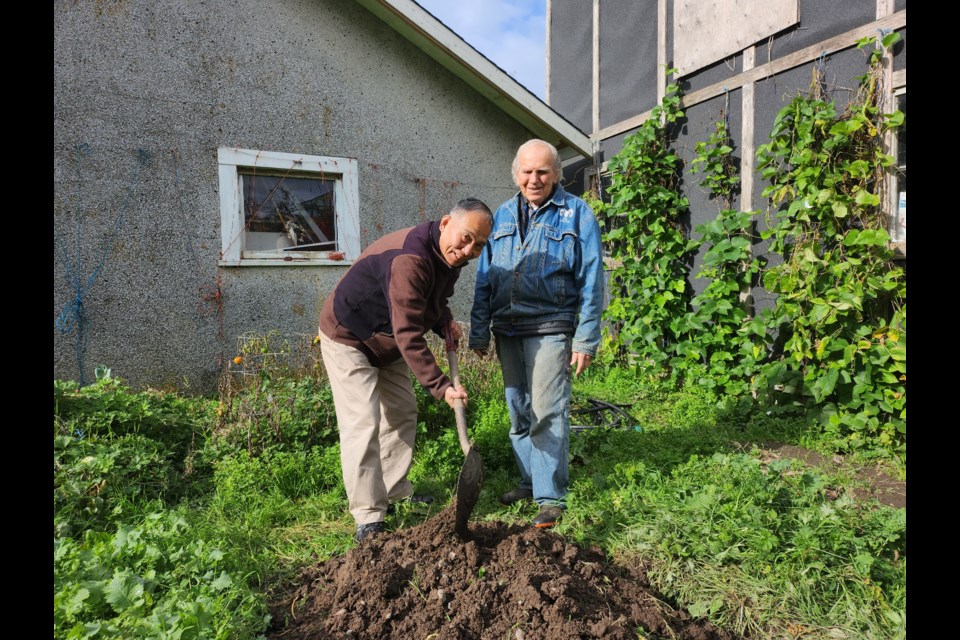Former Richmond councillor and long-time farmer Harold Steves and a researcher from China are a step closer to improving the soil quality in B.C. and even revolutionizing the Canadian farming industry.
In May, Steves and Xinhua Song, a 74-year-old researcher visiting from Shanghai, started an experiment to use a new technology to turn fresh cow manure into nutritious and odourless soil.
Farmers have used cow manure as compost for many years due to its ability to fertilize the soil and improve crop quality. However, unlike the traditional way to let the manure decompose naturally, which takes years, the new technology turns manure into soil within two weeks to a month.
Steves and Song sent the manure tested on Steveston’s farm to testing lab SGS Canada and received results that made them very happy: their manure passed all safety criteria and has much higher nutrients than manure decomposed in the traditional way.
“I was amazed… what it shows is there are no contaminants and you’ve simply got the nitrogen, potassium and phosphorus and other nutrients in the soil. This [report] lists what the various nutrients are in the manure,” said Steves.
According to SGS’s report, the compost turned from fresh poop from Steves’ cows using the technology was 89.89 per cent dry matter, an indicator of the amount of nutrients in the soil – almost three times the average amount in a regular manure (30.29 per cent).
The report also indicated the value of the manure was $24.5 per ton – more than three times the average value of manure decomposed in the traditional way, which is only worth around $7.35 per ton.
“It takes a bit of work … but with the extra work you get better plants, better production, you save the soil and you save the atmosphere,” said Steves.
Creating a demonstration garden
Steves and Song met earlier this year out of a common passion for creating organic, healthy soil and finding alternatives to replace artificial fossil fuel fertilizers.
The principle behind Song’s technology is to apply a mixture of bacteria and yeast to cow manure – the fermentation gets very hot, killing the bad bacteria and cleaning up the odour to create good fertilizer.
Receiving verification from the SGS, the duo is now planning their next step – to plant more crops on a larger scale on Steves’ farm using their organic manure, and create a demonstration garden.
“I’m probably going to suggest it to Kwantlen Polytechnic University, UBC and other [farm programs] and work with them once we’ve got the demonstration garden set up next year,” said Steves.
“I think a lot of the young farmers that go through farm schools would be very interested in it.”
Song explained, because of the rich nutrition in the organic manure, plants tend to grow better and faster than others in soil that has been contaminated by chemicals. They also plan to showcase the demonstration garden to the public during Doors Open Richmond next June.
Steves and Song have a very ambitious plan – to rebuild the soil in B.C. and Canada and make the soil healthier and more organic.
“There are more than 1.4 million hectares of unimproved land and summer fallow, according to provincial data. We could improve the soil on the land using our technology to turn it into farmable land,” said Song.
He added the costs of using the technology will not exceed how much farmers are paying for their fertilizers now.
“There are more than 4.6 million hectares of agricultural land reserve in B.C. If we could reduce the chemical use on only half of it, that would still be very significant,” said Song.

